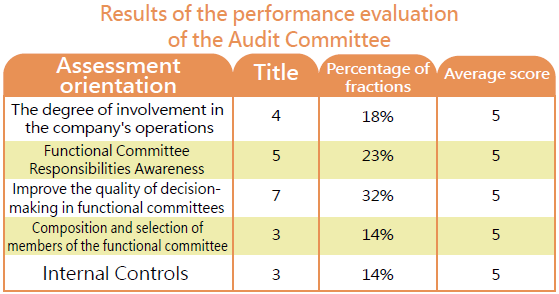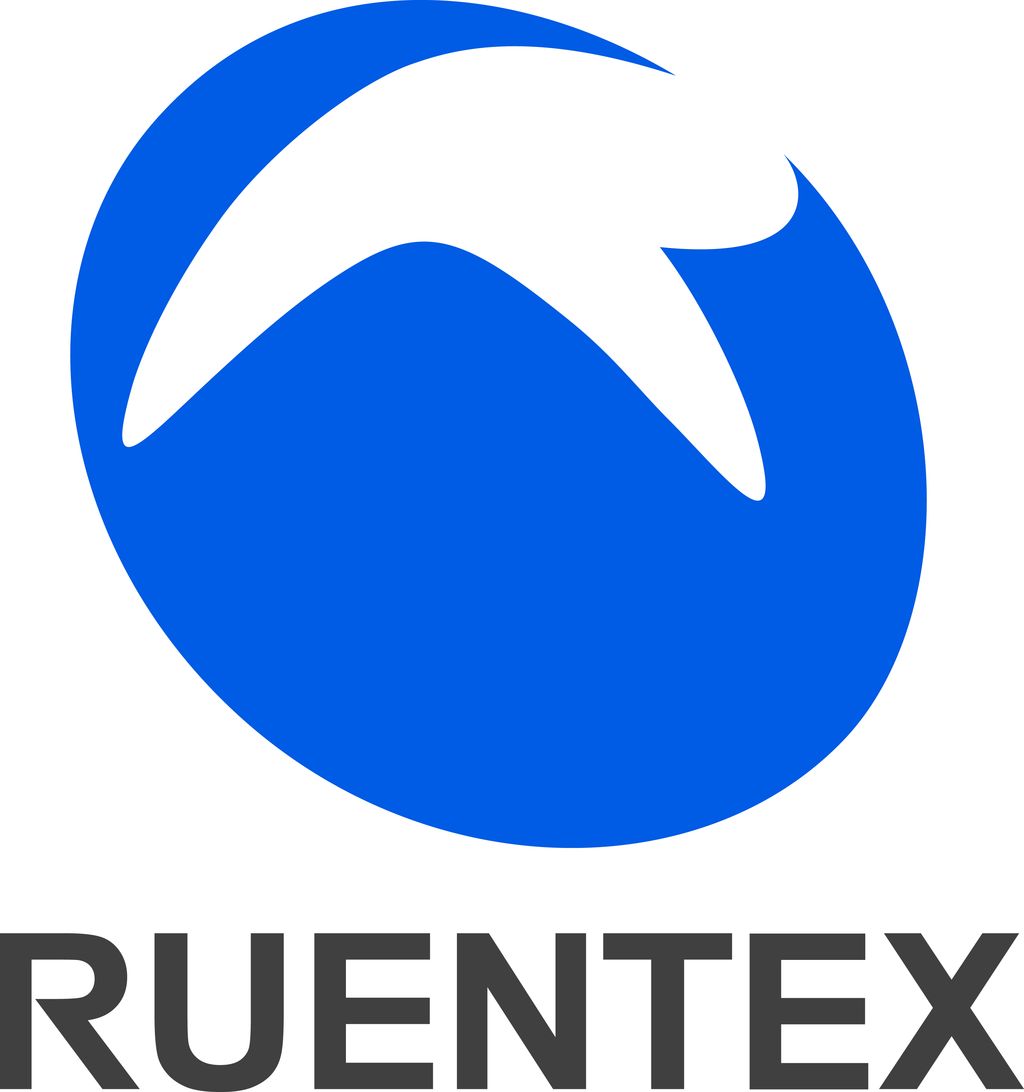Ethical Corporate Management
Policies and Commitments
Ruentex upholds a management philosophy rooted in transparency and accountability, and is committed to building sound corporate governance and risk management mechanisms based on the principles of fairness, honesty, and integrity. The company complies with the Company Act, Securities and Exchange Act, and other relevant laws and regulations, which serve as the foundation for the implementation of ethical business practices.
Ruentex integrates five key practices into its corporate governance framework:
- Enlightened Authoritarianism – Openness and encouragement of diverse opinions during discussions, followed by firm and uncompromised execution once decisions are made.
- Strong Leadership and Effective Communication – Leading with clarity while maintaining active internal dialogue.
- Iron Discipline – Ensuring strict and consistent execution of all tasks.
- Merit-Based Employment – Prioritizing talent and competence in recruitment and promotion.
- Fair and Timely Rewards and Penalties – Applying a “three-parts reward, one-part correction” principle, where penalties serve as constructive feedback aimed at correcting behaviors and guiding improvement.
The following policies guide the company’s governance and integrity efforts:
● Corporate Governance Best Practice Principles
● Sustainable Development Best Practice Principles
● Code of Ethical Conduct
● Ethical Corporate Management Best Practice Principles
● Procedures for Ethical Management and Guidelines for Conduct
Annual Actions and Performance
The total training hours attended by board members amounted to 75 hours, with an average of over 8 hours per director, exceeding regulatory recommendations.
100% of suppliers have signed engineering contract general terms, including anti-corruption clauses prohibiting bribery.
No violations of ethical business practices, corruption, bribery, anti-competitive behavior, antitrust, or monopoly laws have been reported among all directors, employees, and business partners; nor have any complaints or allegations of dishonesty or unethical conduct been received.
Governance Structure and Board Composition
Sustainable corporate development is founded on sound and robust corporate governance. To continuously enhance governance effectiveness, Ruentex has established its Corporate Governance Best Practice Principles based on the “Corporate Governance Best Practice Principles for Listed Companies.” In addition to complying with the Company Act, Securities and Exchange Act, and other relevant laws and regulations, Ruentex aligns with the updated Corporate Governance Blueprint. This includes strengthening the functions of the board of directors and functional committees, respecting and protecting the rights and interests of shareholders and stakeholders, and improving information transparency. At the same time, the company remains attentive to the development of corporate governance systems both domestically and internationally, regularly reviewing and improving its governance structure and practices.

Ruentex’s highest governance and decision-making authority is the Board of Directors, which is accountable to the shareholders’ meeting. The company’s governance operations and arrangements ensure that the board exercises its powers in accordance with the board meeting rules, relevant laws and regulations, the company’s articles of incorporation, and shareholders’ resolutions. The board’s responsibilities include reviewing the company’s operational plans, financial reports, and future development strategies; establishing or revising internal control systems and effectiveness assessments, management policies, and procedures for significant financial and business activities; appointing and supervising the chairman and senior executives; and addressing major matters stipulated by shareholders’ resolutions or regulatory authorities. In 2023, the board held a total of 8 meetings, with an average attendance rate of 88.89%.
The nomination and selection of board members are conducted in accordance with the “Director Election Procedures” and the company’s Corporate Governance Best Practice Principles, as well as relevant regulations. The director election adopts a candidate nomination system that values shareholder suggestions, with shareholders electing directors from the nominated candidate list by cumulative voting. Directors serve a three-year term and may be re-elected. The chairman is elected by a majority vote from among the directors present, requiring attendance of at least two-thirds of the board members. Currently, Mr. Lee Chih-Hung serves as chairman.
(Note: The chairman does not concurrently hold the positions of general manager or other senior executive roles.)
Furthermore, Ruentex has established succession plans for both the board and senior management. Successors must demonstrate outstanding capabilities and share the company’s values, with character traits including integrity, commitment, innovation, and the ability to earn customer trust. The board succession plan involves grooming senior managers to become familiar with board operations and group business units through job rotation to deepen industry experience. The company has a well-established delegation system ensuring all roles function smoothly per their responsibilities, with plans to develop strategic abilities and select suitable board successors.
Senior management succession training is divided into management skills, professional skills, personal development plans, and job rotations. Training covers areas such as human resources, financial risk, and overseas assignments, integrated through professional development programs to cultivate decision-making and judgment capabilities.
To avoid conflicts of interest, the board meeting rules stipulate a director recusal system. Directors who have conflicts of interest in board matters, either personally or representing related legal entities, must refrain from participating in discussions and voting if there is potential harm to the company’s interests. Such directors must also abstain during discussion and voting and cannot act as proxies for other directors.
Regarding independent directors, in addition to complying with the regulations for independent directors of publicly listed companies, they must have qualifications as university lecturers or above in law, finance/accounting, or relevant fields required by the company’s operations. They must maintain independence within their scope of duties and must not have direct or indirect conflicts of interest with the company.
Board Diversity Policy
To strengthen corporate governance and promote a sound development of the board’s composition and structure, Ruentex advocates and respects a Board Diversity Policy. Besides ensuring that directors who concurrently serve as company managers do not exceed one-third of the board seats (currently accounting for 22%), the board members should formulate an appropriate diversity policy based on the company’s operations, business model, and development needs. This policy considers fundamental criteria and values such as age, gender, nationality, and cultural diversity. Board members should also possess the necessary knowledge, skills, and competencies to perform their duties effectively. These include expertise in construction project management, civil engineering, finance and accounting, law, occupational safety and health, as well as experience in business judgment, management and risk control, leadership decision-making, and crisis management. This ensures complementary cross-industry capabilities and diversity within the board.
In 2023, the board comprised 9 members (including 3 independent directors, accounting for 33%). The age distribution included 7 directors aged between 61 and 75 years and 2 directors aged between 31 and 60 years, all serving a three-year term. Among them, 1 director is female, representing 11% of the board. In the upcoming board election, at least one female director seat is expected to be retained to promote gender equality in the board’s composition.
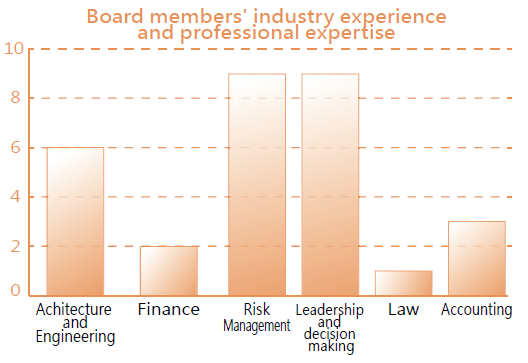
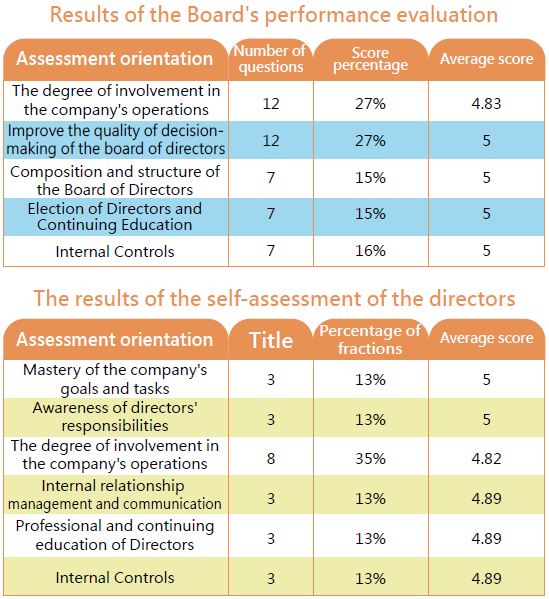
Board Performance Evaluation
To implement sound corporate governance and enhance the functionality of the Board of Directors, Ruentex has established the Board Performance Evaluation Procedures to set performance goals and strengthen board operational efficiency. Different evaluation methods may be tailored for various assessed units.
An annual evaluation is conducted at least once on both the overall operation of the board and the individual performance of each director. This evaluation is carried out by the Accounting Department and includes internal board self-assessment, individual director self-assessment, and functional committee self-assessment, all conducted through questionnaires. The collected data is consolidated by the coordinating unit, recorded based on specific evaluation indicators, and then reported to the board for review and improvement.
The most recent evaluation report dated February 2, 2024, showed that in terms of board members’ participation in company operations, attendance rates at board meetings and shareholders’ meetings did not reach 100%. Efforts will be made to coordinate schedules so that all directors can attend future meetings. Other evaluation aspects received full marks, resulting in an overall average score of 4.96.
Regarding individual director performance, some directors hold concurrent positions in other companies’ boards or supervisory committees. One director self-assessed below full marks in areas such as internal relationship management and communication, professional expertise and continuous learning, and internal control. The overall average score for individual directors was 4.89.
The evaluation results indicate that the board operates effectively and will be used as a reference for future director selection or nomination, as well as for determining individual director compensation.
Functional Committees
Remuneration Committee
Ruentex established the Compensation Committee at the end of 2011, which holds at least two meetings annually. The committee is composed of three directors, with independent directors constituting the majority. The committee is currently in its fifth term. In 2023, the Compensation Committee held three meetings with a 100% attendance rate from all members.
The main agenda and execution items for the year included reviewing the performance goals and compensation policies, systems, standards, and structures for directors and managers; assessing the achievement of these performance goals; and evaluating the content and amounts of individual compensation. The committee’s recommendations are then submitted to the board for discussion.
The 2023 performance evaluation of the Compensation Committee achieved full marks in all assessed areas.
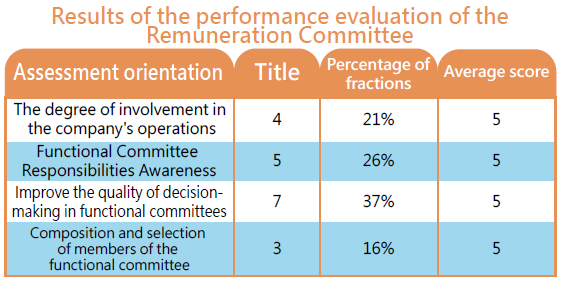
Audit Committee
Ruentex established the Audit Committee in 2020, which holds meetings at least once every quarter. The committee is composed entirely of independent directors, with no fewer than three members. One member serves as the convener, and at least one member must possess expertise in accounting or finance. The committee is currently in its second term.
In 2023, the Audit Committee held eight meetings, with a 100% attendance rate from all members. The main agenda and tasks for the year included ensuring the proper presentation of the company’s financial reports, appointment and dismissal of certified public accountants and assessment of their independence and performance, effective implementation of internal controls, compliance with relevant laws and regulations, as well as the management of existing or potential risks faced by the company.
The 2023 performance evaluation of the Audit Committee received full marks in all assessed areas.
